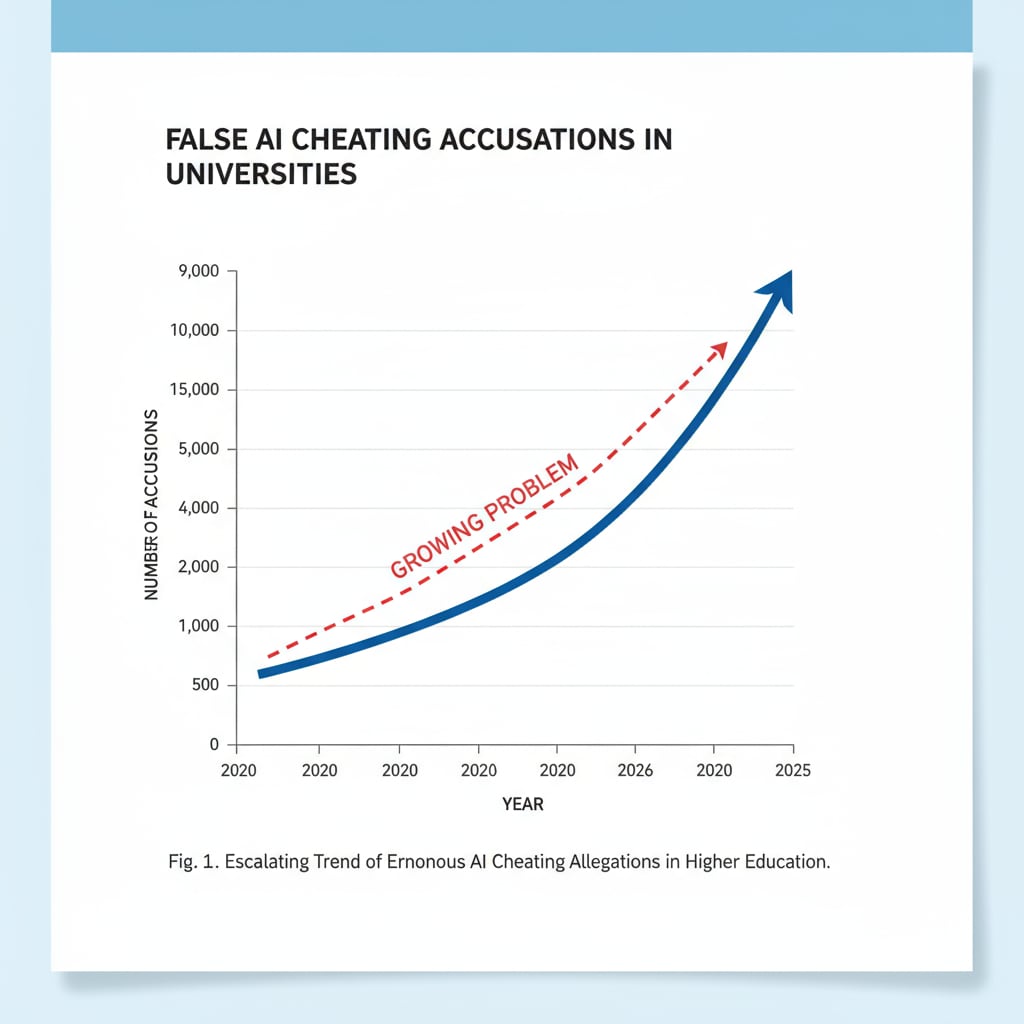In the era of rapid technological advancement, the issue of university responsibilities in false accusations of AI cheating among students has become a pressing concern. As AI tools find their way into educational settings, the number of students wrongly accused of using AI for academic dishonesty is increasing. This not only undermines the students’ rights but also reflects flaws in the educational system’s approach to handling such situations.

The Surge of False AI Cheating Accusations
The rise of AI has brought about a new wave of challenges in education. With the ability of AI to generate text and solve problems, universities are struggling to distinguish between genuine student work and AI-generated content. As a result, many students are being falsely accused of cheating. For example, students who may have unique writing styles or use advanced language skills in their assignments are sometimes wrongly flagged as AI users. According to a report by Inside Higher Ed, numerous cases of misidentifying student work as AI-generated have been reported across various institutions.

The Harms of False Accusations
False accusations of AI cheating can have severe consequences for students. Firstly, it can damage their academic reputation. A cheating allegation, even if false, can follow a student throughout their academic journey, affecting their chances of getting into graduate programs or securing future employment. Secondly, it takes a toll on their mental health. The stress and anxiety of being wrongly accused can lead to emotional distress and in some cases, affect their overall well-being. For instance, students may experience sleepless nights, loss of confidence, and a decline in academic performance due to the unjust accusations.
University Responsibilities in this Crisis
Universities bear a significant responsibility in preventing and addressing false accusations of AI cheating. They need to invest in reliable detection tools that can accurately distinguish between student work and AI-generated content. Additionally, universities should establish clear and fair guidelines on what constitutes AI cheating. Moreover, providing training to faculty members on how to identify and handle potential cases of AI cheating is crucial. As stated by The Chronicle of Higher Education, proper training can help educators make more informed decisions and reduce the likelihood of false accusations.
In conclusion, the issue of university responsibilities in false accusations of AI cheating among students demands immediate attention. By taking proactive steps to improve detection methods, establish fair guidelines, and support students, universities can create a more just and equitable educational environment. This is essential for protecting the rights and futures of students in the age of AI. Readability guidance: The article uses short paragraphs to convey key points clearly. Each section provides a focused discussion on different aspects of the issue. Transition words are used to ensure a smooth flow, and external links are included to support the arguments made.


